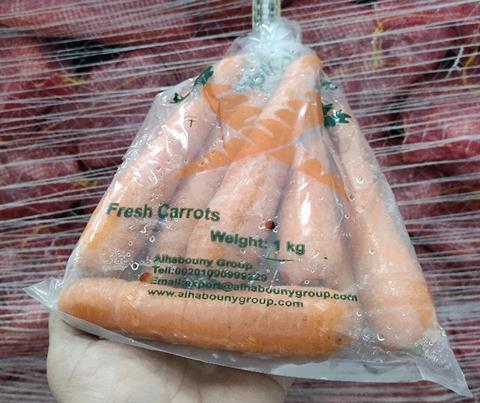Egypt has emerged as a significant player in the global carrot market, becoming the third largest supplier of carrots to the EU in 2022/23, according to Khaled Alhabouny, operations director at Alhabouny Group
With the start of Egypt’s fresh carrot season, the anticipation in the agriculture sector is palpable. This year’s crop is expected to be exceptional due to favourable climatic conditions and improved farming practices.
Larger quantities of carrots are being cultivated in Egypt compared with last year as producers aim to meet the needs of their customers in Europe and Africa.

The latest information indicates that there will be a shortage in Europe this year as a result of the impact of climate change. Egyptian carrots, known for their high quality, vibrant colour and strong flavour, are in high demand in global markets.
Demand from Europe, especially the UK and Romania, has seen a significant increase due to recent domestic production challenges, the ongoing energy crisis and increased demand for imported carrots.
Our commitment to sustainable and advanced farming methods ensures that we deliver high-quality products to our global customers. We are excited about the potential of the season and look forward to meeting the growing demand for Egyptian carrots.
Egyptian carrots are also exported to various African countries, expanding the market and strengthening Egypt’s position as a major exporter in the region.
We at Alhabouny Group (Al-Samah for Import and Export) cultivate carrots in specific areas using a pesticide programme and fertilisers adapted to global demand. Thanks to Egypt’s strategic location, the country is well prepared to efficiently meet the needs of the international community.

The carrot season, which begins in mid-December and is expected to extend beyond June, promises a steady supply of high-quality carrots to markets around the world. Egypt’s role in the global agricultural landscape continues to grow, making it a pivotal player in the fresh produce industry.
The upcoming carrot season is yet another testament to Egypt’s agricultural prowess and its ability to adapt and thrive in the face of changing global conditions.



